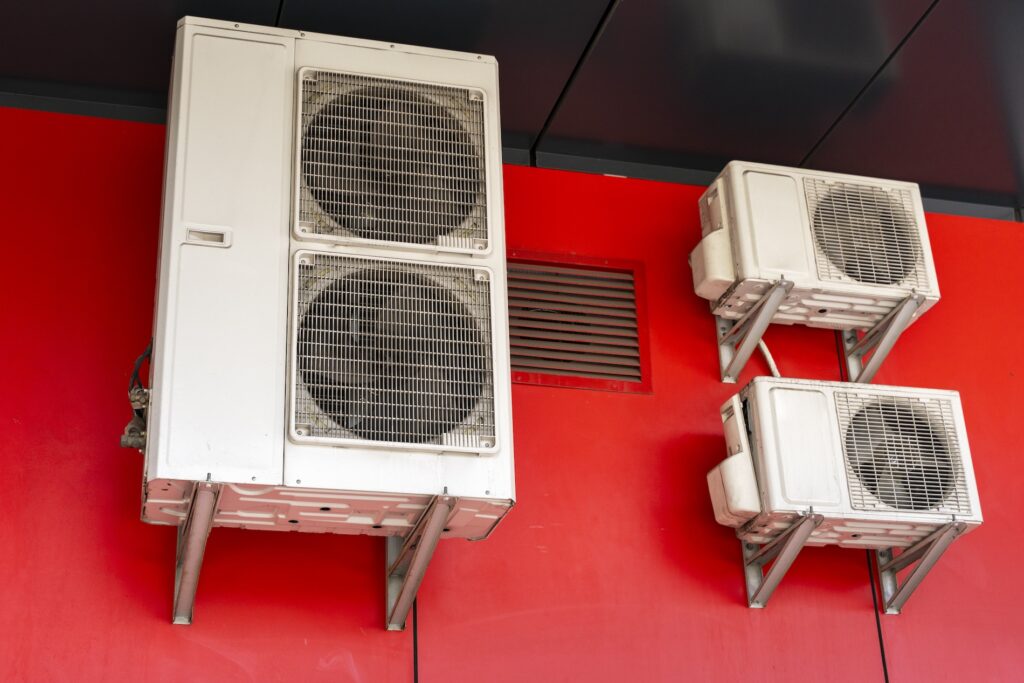When the summer heat rolls through Wesley Chapel, few things are more frustrating than an air conditioner that won’t run properly. For homeowners, a cooling system that suddenly stops working can lead to uncomfortable days and sweaty nights. But while there are several parts that keep an AC running smoothly, the capacitor plays a big part in keeping everything powered the right way.
Capacitor failure is one of the more common causes of AC breakdowns during hot weather. This small but important component stores and delivers the electrical energy needed to start and run the different motors inside the system. When something goes wrong with it, your AC might stop cooling altogether or behave in strange ways. Understanding some of the common capacitor problems can help you catch issues early before they lead to a full system failure.
What Is an AC Capacitor and How Does It Work?
Every air conditioner relies on a capacitor to power up its key components. It is a small cylindrical part usually located near either the compressor or motor, depending on the system. The capacitor works like a temporary battery. It stores an electrical charge, then releases it when your system’s compressor, blower motor, or fan motor needs a boost to start running or to keep running.
There are two main types of capacitors used in residential AC systems:
1. A start capacitor gives a large energy jolt to help the motor start up.
2. A run capacitor provides steady voltage so motors keep running smoothly during operation.
Without a working capacitor, the motors can’t start or stay on, even if your thermostat is set correctly. In most residential systems in Wesley Chapel, failing capacitors are a common reason air conditioners won’t start at all or shut down after just a few minutes. It is one of those problems that can sneak up quickly and leave you stuck in the heat without warning.
One example we hear often is a homeowner noticing that their AC fan begins to spin but suddenly stops after a minute or two. This is a classic case where the run capacitor may not be holding its charge, meaning the fan motor is not getting enough power to stay on.
Common Signs of AC Capacitor Failure
Capacitor problems can show up in a few different ways, and if you live in Wesley Chapel, warm temperatures may speed up how quickly these issues appear. Most homeowners notice changes in how their system sounds or how it starts up. If your cooling system is not acting like it normally does, your capacitor may be one of the parts to blame.
Here are some warning signs your capacitor could be failing:
1. AC won’t start: If your system doesn’t respond when you switch it on, the capacitor may not be sending the charge it needs to the motor.
2. Humming noises: When your system tries to turn on but only makes a low humming sound, that can mean power is reaching the motor, but it is not getting enough charge to run.
3. Takes longer to cool: A weak capacitor might still be able to power things up, but not at full strength. That can lead to slower cooling or uneven temperatures indoors.
4. Shuts off quickly: If the system starts but shuts back down within minutes, that is often a signal the capacitor is not holding the charge well enough to keep components running.
5. Burning smell or bulging part: If you notice a chemical smell or see a swollen capacitor when you peek inside the outdoor unit (with the power off), the part is likely damaged and must be replaced by our technicians.
Some homeowners overlook these small changes or chalk them up to high temperatures. But when any of these symptoms happen together or more than once, it is time to have it looked at before it leads to full AC failure. Since capacitors can wear down silently, spotting these signs early is key to avoiding bigger repair costs down the line.
Top Causes of AC Capacitor Issues
Understanding what causes capacitors to fail can help homeowners in Wesley Chapel take early preventive steps. Some of these issues develop slowly, while others happen without warning. Given how hot it gets locally during the summer, a few key reasons come up time and time again.
Here are the most common causes of capacitor failure:
1. Overheating: Temperatures stay high in Wesley Chapel throughout the summer, which adds stress to all AC components. Capacitors are especially sensitive to heat. When the unit runs for long hours in hot weather, this constant demand can cause the capacitor to overheat or break down faster.
2. Age and wear: Like most mechanical parts, capacitors won’t last forever. Over the years, the materials inside start to degrade. Once the internal components get weak, the capacitor has a harder time storing and releasing the electrical charge needed to run your system.
3. Power surges: Short electrical spikes from lightning strikes, faulty wiring, or sudden power restoration can damage capacitors. Even if the surge is brief, it can be strong enough to burn the part out completely or shorten its lifespan.
4. Wrong replacement: If a capacitor is replaced with the wrong model or tolerance level, it can fail again quickly. The part has to match the system’s technical requirements for voltage and microfarads. That is why it is so important to have one of our professionals inspect and install replacements when needed.
When problems like these are left unaddressed, they can also damage other system parts like the compressor or motors. Replacing a capacitor is a much easier fix than larger component repairs, which is why tackling the issue early can help prevent longer disruptions to your comfort.
Preventing and Addressing AC Capacitor Problems
You can’t control outside weather or occasional power issues, but there are still a few things you can do to reduce the risk of capacitor problems. Keeping your AC system healthy through simple, routine care makes a big difference during the hotter months in Wesley Chapel.
Here are some practical steps homeowners can take:
1. Schedule annual inspections before peak cooling season kicks in. Our professionals can test the capacitor’s performance to see if it is weakening.
2. Keep your outdoor AC unit clear of dirt, leaves, and grass. This reduces the burden on the components inside and improves airflow, which helps prevent overheating.
3. Don’t push your thermostat too low during high heat. Setting it just a few degrees higher can cut down on how often your unit cycles, lowering stress on the capacitor.
4. Listen for changes in sound or startup timing. If you hear a hum or notice a delay in startup, turn the unit off and contact one of our technicians.
5. Make sure your system always has the correct replacement parts. Our technicians make sure any capacitor installed matches the exact specs for your model.
Preventive care works best when it is done consistently. While some signs show up quickly, others happen quietly over time. Regular checkups help spot capacitor problems early before they spread to other parts.
Stay Cool With Timely AC Repair in Wesley Chapel
A failing capacitor may seem like a small part of the system, but it plays an essential role in how well your AC runs. Ignoring capacitor issues can leave you dealing with more than just heat. It can lead to major breakdowns that cost more and take longer to repair. With Wesley Chapel’s hot climate, your AC works hard to keep your home cool, so giving attention to the parts behind the scenes is just as important as changing the filter or setting the thermostat.
When you know the warning signs and understand what causes capacitor problems, you are better prepared to act quickly. Prolonging service or skipping regular maintenance leaves your system open to surprise failures, especially during the months you rely on it most. Whether it is the first sign of trouble or you just want peace of mind, getting a professional opinion helps keep your cool air flowing when it matters the most.
Keep your home comfortable by addressing capacitor issues early and ensuring your AC system receives timely professional attention. Franks Air Conditioning & Heating understands that reliable service is crucial during the hot summer months in Wesley Chapel, so if you suspect problems with your unit, consider scheduling AC repair in Wesley Chapelto maintain optimal performance and avoid unexpected breakdowns. For a quick estimate or to book a service visit, please contact us today.



